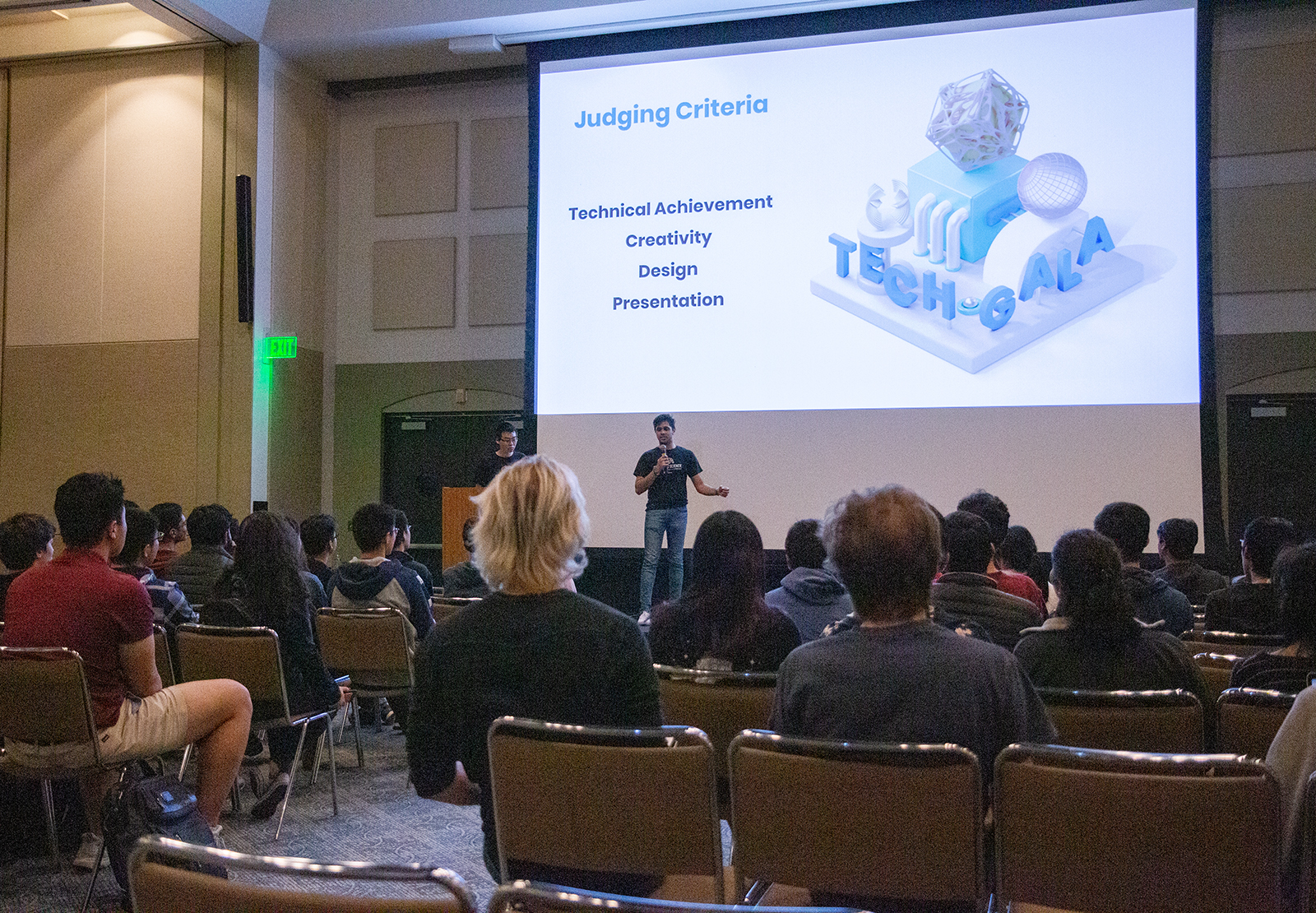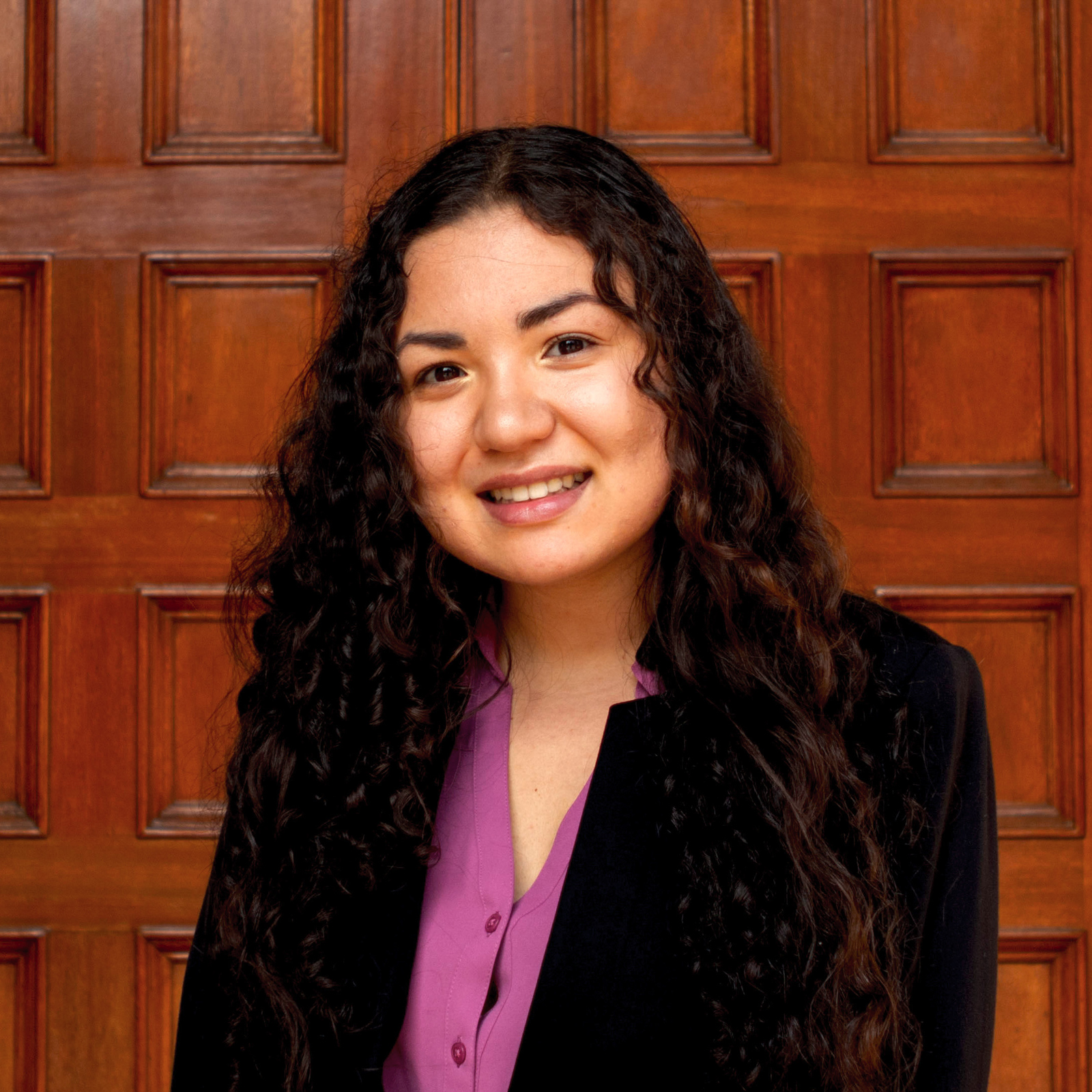Tech Gala gives students opportunity to present technological projects

The Association of Computing Machinery held its annual tech gala Monday. All students were invited to submit technological projects to be judged by representatives from Facebook and UCLA computer science professors and compete for prizes including AirPods and an Amazon Echos. (Keaton Larson/Daily Bruin)

By Emily MacInnis
Feb. 11, 2020 7:52 p.m.
Students showcased their technological projects, ranging from story-building games to user-interface tools, at a UCLA technology gala Monday evening.
The Association of Computing Machinery hosted its annual Tech Gala in the Covel Commons, Grand Horizon Room this year, where students can present technological projects they have been working on.
The best-rated projects won prizes, including AirPods and Amazon Echos. Facebook representatives and UCLA computer science professors judged entries for their technological achievement, creativity, design and presentation.
The event aimed to display the diverse applications of technology, said Tejas Bhat, an event organizer and a second-year computer science student.
One technological project, a web application, translates piano performances into sheet music in real-time.
Two of the app, called Pianotes’, co-creators are Soumya Uppuganti, a second-year computer science student and Rohith Kodukula, a second-year math/economics student. It displays a keyboard the user can play, and also lets them change octaves and add accidentals using the keyboard.
Another project was a choose-your-own-adventure program that uses Amazon’s home assistant Alexa, created by computer science students Robert Geil, a third-year student, and Miles Wu, a second-year student.
Story Seeker allows users to submit their own stories on an online platform, Geil said. The program checks that the story makes sense, and then compiles the story using natural language processing.
Users can then “play” different stories by running the Story Seeker app, choosing a story and speaking to Alexa to choose which path their story takes. Alexa will read a section of a story and provide the user options of where to take the story next.
Third-year computer science students Hirday Gupta and Samuel Lee created Deft, a user-interface design tool that minimizes communication between designers and developers to reduce error.
Normally, when a designer creates a piece, a developer will have to manually translate the design into code, Lee said. However, this creates opportunities for miscommunication between the designer and developer, and the developer is prone to make errors in their translation.
To mitigate this problem, Deft takes a designer’s product and automatically translates it into code, so the developer can use it directly. A designer can set parameters for their design so that it fits different aspect ratios in the way they specify.
Tyler Szeto, a third-year computer science and linguistics student, created a program that improves on current video compression methods for animated videos. Video compression shrinks the size of video files by looking for visual redundancies and reusing those pixels. This means the video does not have to regenerate itself for each frame, thus decreasing its data usage and increasing its speed.
Dandere2x, Szeto’s project, is an improvement upon a video compression program used primarily for anime, called waifu2x. While waifu2x produces high-quality videos, it can be very slow and inefficient, Szeto said. Szeto’s method speeds up the waifu2x process while still producing videos with high visual quality.
Brenden Stevens, a third-year electrical engineering student, created an audio spectrum analyzer. The program takes in ambient noise and analyzes and prints the frequencies present. It displays the prevalence of each frequency detected that is between 0 and 9,000 hertz. This type of algorithm can be used to detect signal distortion, a key consideration in designing power transmission lines, Stevens said.
Dandere2x won the award for best solo project, and Story Seeker won the award for the best overall project.


